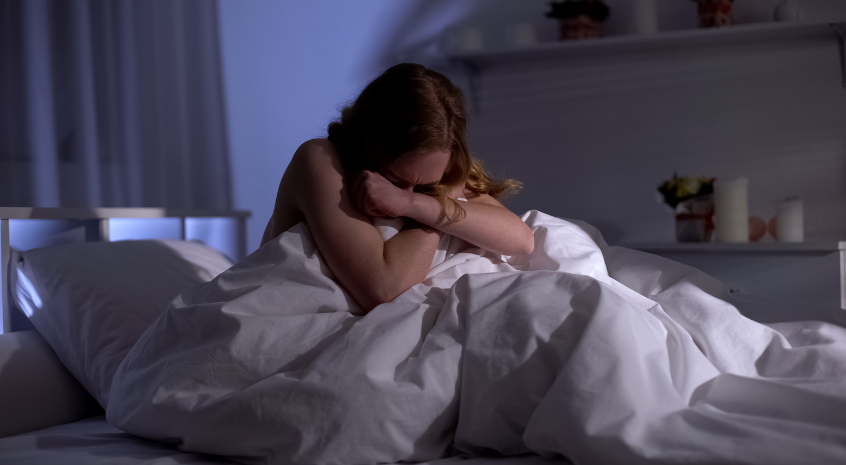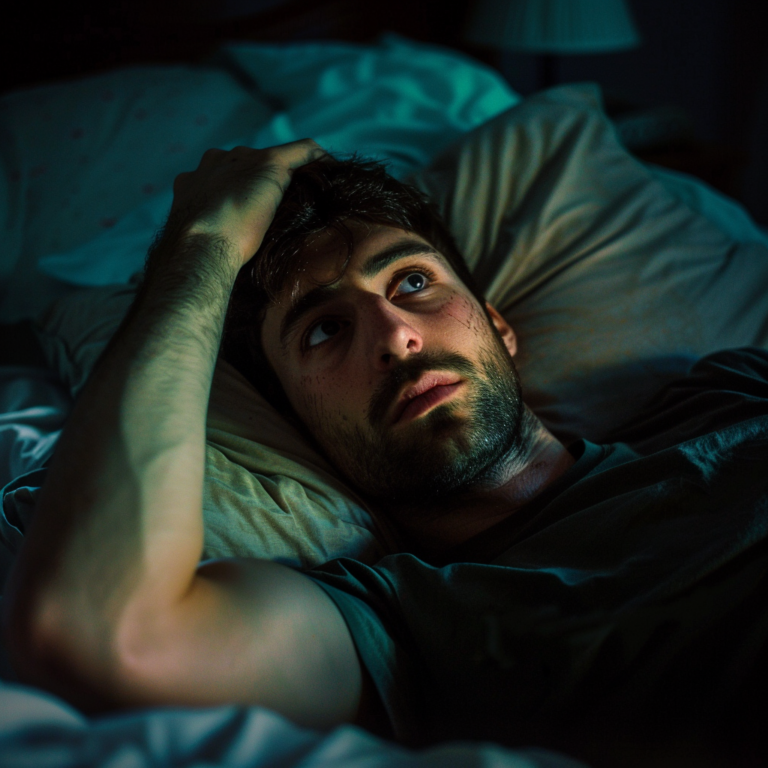Many people find that the only way that they can go to sleep at night is with the help of sleeping pills. However, just like any other drug, the brain develops a dependence on them and before you know it, addiction follows. Does this sound like you or someone that you care about?
We at Asheville Detox understand the complexity of addiction. Quitting sleeping pills cold turkey can make your insomnia worse than it ever was before. We know how to ease you off of your medication so that you can remain as comfortable as possible. Let’s take a look at five of the most common myths surrounding sleeping pills and uncover the real truth behind them.
Myth #1: You Cannot Become Addicted to Sleeping Pills
Many people visit their doctor and are prescribed sleep aids, only to be advised by their physician that these drugs are not habit forming and they cannot become addicted to them. This leads the patient to believe that it is perfectly safe for them to take them every night for an extended period of time.

However, here is the truth. When taken for longer than two weeks, sleeping pills cause the user to become physically dependent upon them. This becomes a particular problem when the patient begins taking extra pills because they have developed a tolerance to their original dosage. Here are some signs that you have become addicted to sleep aids:
- You require larger doses to fall asleep
- You have tried to stop taking them but failed
- You are ignoring your work and family obligations
- You seem to be confused or detached from others
- You are making dangerous choices while taking sleeping pills
- You are isolating yourself from your loved ones
- You are experiencing symptoms of withdrawals
- You are having cravings for sleeping pills
- You are experiencing mood swings
Myth #2: Sleeping Pills Do Not Affect Your Health
One of the most popular and newest sleep aids on the market today is Ambien. It is meant to be used for six weeks or less. However, once people begin to use it, they find it difficult to get any sleep without it. Others use it recreationally. No matter what the case is, using Ambien long-term can have hazardous effects on your health. Here are a few health problems you may expect to experience if you keep taking Ambien:
- Dizziness and drowsiness
- Persistent fatigue
- Digestive troubles
- Depression and suicidal thoughts
- Confusion and hallucinations
- Nightmares
- Insomnia
- Withdrawal between doses
- Addiction
- Lack of muscle control
- Dry mouth
- Frequent headaches
- Anxiety
- Frequent headaches
- Muscle pain
- Lack of coordination
Myth #3: Sleeping Pills Are Relatively Safe
The truth about sleeping pills is that they are dangerous to take, not just for health reasons but because of what you can do when you are taking them. Some people develop what are known as parasomnias, which are sleep disorders that cause you do participate in dangerous activities while you are sleeping.
For example, some people who are asleep on sleeping pills have done things like gotten behind the wheel of a car, or accidentally drowned themselves.
Some have committed suicide, or attempted it. Some have walked out into the cold and gotten hypothermia, while others have pulled out a gun and hurt themselves. People on sleeping pills have simply tried to walk around, and were so disoriented that they fell and struck their head and needed to be admitted to the E.R.
Myth #4: Sleeping Pills Have No Dangerous Side Effects
We would like to believe if a doctor prescribes us a medication, that it is relatively good for our bodies. However, when it comes to sleeping pills, this is not the case. Some people who take sleeping pills have allergic reactions which cause them to have difficulty breathing, nausea, chest pain and swelling. The following are common side effects of sleeping pill abuse:
- Coordination issues
- Memory loss
- Drowsiness during the day
- Dizziness
- Dry mouth
- Swelling and itching
- Needing to take sleeping pills nightly
- Being worried about bedtime in order to take sleeping pills
- Being lightheaded
- Experiencing varying effects from the same dose
- Taking sleeping pills recreationally
- Wanting to take sleeping pills during the daytime hours
- Running out of your prescription early

Myth #5: Sleeping Pills Always Help You Sleep Better
When you take a sleeping pill every night, eventually you will find that you won’t be able to sleep by taking the same dose that you originally did. Eventually, you will find that your sleeping pills don’t do the trick at all anymore. So, perhaps you decide that you will stop taking them.
Now, your insomnia is worse than it was before you even started taking the sleeping pills in the first place. It may be days before you get any sleep as your body adjusts to being without the chemicals it has grown so used to having. This scenario is known as rebound insomnia.
So, do sleeping pills always make you sleep better? The answer is not really. They will work for you in the beginning and then they will eventually stop working once you have built up a tolerance. Then you quit them and when you are experiencing withdrawals, rebound insomnia will be a difficult symptom to overcome.
Let Go of Your Addiction at Asheville Detox
There are many natural ways to relax your body and prepare it to go to sleep at night. Sleeping pills are meant to be a temporary fix for times when our minds are overwhelmed by the circumstances in our life. Have you been taking sleeping pills with alcohol or other drugs in order to enhance their effects? If so, this is a key indicator that you are abusing them.
Admitting that you have a problem is always the most difficult first step, because it means that you will have to let go of that which you have been holding onto so tightly. We at Asheville Detox understand how hard it can be to release your addiction. Contact us or give us a call and we will take care of the rest.







